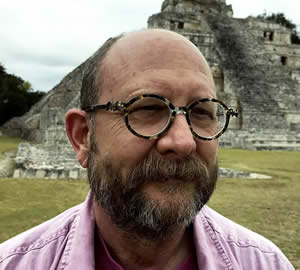Being and Impression

An e-book by Lee van Laer
$9.99
Order the Book
by clicking above.
From the introduction (Chapter 1):
Each of our parts has its own being.
That applies not just to our thinking part (head), our physical part (body), and our feeling part (emotions.) The fact extends to every organ that we are composed of, as well as every cell.
We don’t have a lot of respect for this. Our thinking mind seems to come to the body believing that it owns all the parts, that is, the hands, the feet, the lungs, etc.
All the evidence proves this isn’t true: each of our internal organs, for example, has its own tasks which it performs with enormous precision and levels of detail beyond the comprehension of the thinking mind. So, for example, the lungs “think” in their own way about how to take air in and out; we just don’t conceive of it in that way, because it is inconvenient to our perception of ourselves as owners of everything that we are composed of.
It might be helpful to reconfigure our attitude towards our Being so that we understand our thinking part, the part that perceives, is a participant in this complex of organs and actions, not the landlord.
Numerous metaphysical systems explain that every organ in the body corresponds to a different portion of the angelic realms, and heaven itself. All of our parts, in other words, mirror an overarching cosmological structure. Our mind occupies a part, but not all, of said structure – perhaps the glue that holds some of it together, but no more. Developing respect for oneself and for being involves developing a respect for the whole structure that begins with participation, rather than coercion.
If, for example, I tell myself to sense myself, I’m trying to be the boss of something. I’m ordering my body around and “demanding” that it sense for me. One can get some results from this, of course, but the body has its own way of coming to sensation and its own intelligence about how to do that, and the actions of my mind in this area may well be offensive to it, if not downright obstructionist. So no matter how good my intentions towards my parts are, if they don't begin with respect (and how rarely they do!) I’m already working against the very aims and goals I have set for myself.
This business of trying to be the boss of something is a pernicious tendency that spreads through every area of Being. What doesn’t help much is that without a more developed and sensitive awareness of the other two brains in me — the body and the emotions — they, as well, start trying to be the boss of various things. They are much more powerful than the mind to begin with, and often get their way— so we end up fat, or addicted to nicotine, or we end up selfish and angry. These are just a few examples, mind you, but everyone is more or less familiar with them.
Developing a respect for each of the parts we’re composed of involves setting an example — perhaps, first, with the mind each part needs to help set an example from within its own Being. After all, when we refer to these inner parts as brains, we’re acknowledging that they are very complicated nervous systems with extraordinary abilities—to sense, to collect data, to perceive, and to become agents in an exchange with the world that lies outside their own nature.
It’s quite important to understand this idea of the world that stands outside the nature of a brain; because even in the simplest cell, what lies outside it is a different world than what takes place inside it. The whole point of the cell’s “brain” (such as it has one, and even the tiniest cell functions to some extent in this way) is to gather information from this outside world and form a relationship. So our thinking mind is a brain in relationship with a “world”outside it that is quite different; and our body is also a “brain” with a similar relationship to an outside world around it; and our emotions are also exactly this kind of “brain.” Each one of them is limited in the way they perceive by the margins of their own world, which define their ability. When they come together, and work together, each one of them brings to the table perceptions of that outside world which the other two are unable to have.
Now, there’s a tricky part here, because each “brain”has, of itself, a thinking, physical, and feeling part – and it’s easy for anyone of them to mistakenly think that its own three-brained nature gives it the capacity to do all the work of the other two by itself. Of course Gurdjieff spoke about this at length, and we think we understand it — but that’s not the case. We live within this problem, and it’s very difficult to rise above it and get a comprehensive view, because we’re almost always scrutinizing it from one of the three parts.
The whole point of the harmonious development of man, as Gurdjieff called it, is that it takes many years of work to help the various parts come together in a more cooperative understanding. The books about his work don’t teach that; and indeed, perhaps it can’t quite be taught, because there is no substitute for many years of direct work with other people in which one experiences relationship in the context of Gurdjieff’s questions. It’s the context of the action over many years that helps form an understanding of how the parts function.
In any event, my aim here is to remind us that the most important thing about the work we’re in is the formation of relationships; and the inner relationships between the parts need to be formed first, before we can discover ways to make outer relationships function at better levels. Developing a respect for the individual capacities of the parts and allowing each of them to come to the table as an equal partner, able to do its own absolutely necessary work, is an essential feature of acquiring the qualities of a human being.
Lee van Laer, February 2017
Sparkill, NY

|